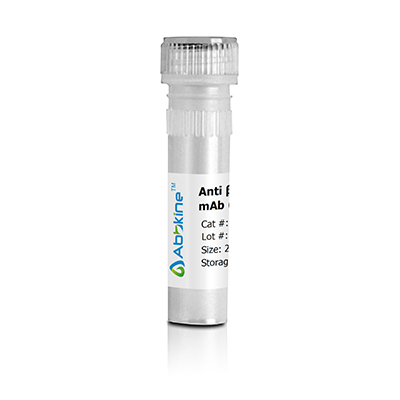Flap endonuclease 1 encoded by FEN1 removes 5' overhanging flaps in DNA repair and processes the 5' ends of Okazaki fragments in lagging strand DNA synthesis. Direct physical interaction between this protein and AP endonuclease 1 during long-patch base excision repair provides coordinated loading of the proteins onto the substrate, thus passing the substrate from one enzyme to another. The protein is a member of the XPG/RAD2 endonuclease family and is one of ten proteins essential for cell-free DNA replication. DNA secondary structure can inhibit flap processing at certain trinucleotide repeats in a length-dependent manner by concealing the 5' end of the flap that is necessary for both binding and cleavage by the protein encoded by this gene. Therefore, secondary structure can deter the protective function of this protein, leading to site-specific trinucleotide expansions.
FEN-1 Polyclonal Antibody detects endogenous levels of FEN-1 protein.
Optimal working dilutions should be determined experimentally by the investigator. Suggested starting dilutions are as follows: WB: 1:500-1:2000, IHC-p: 1:100-1:300, IF: 1:200-1:1000, ELISA: 1:20000. Not yet tested in other applications.
FEN-1 Polyclonal Antibody product listed herein is for research use only and is not intended for use in human or clinical diagnosis. Suggested applications of our products are not recommendations to use our products in violation of any patent or as a license. We cannot be responsible for patent infringements or other violations that may occur with the use of this product.
Find more details at http://www.abbkine.com/product/fen-1-polyclonal-antibody-abp51337.
bio-equip.cn




